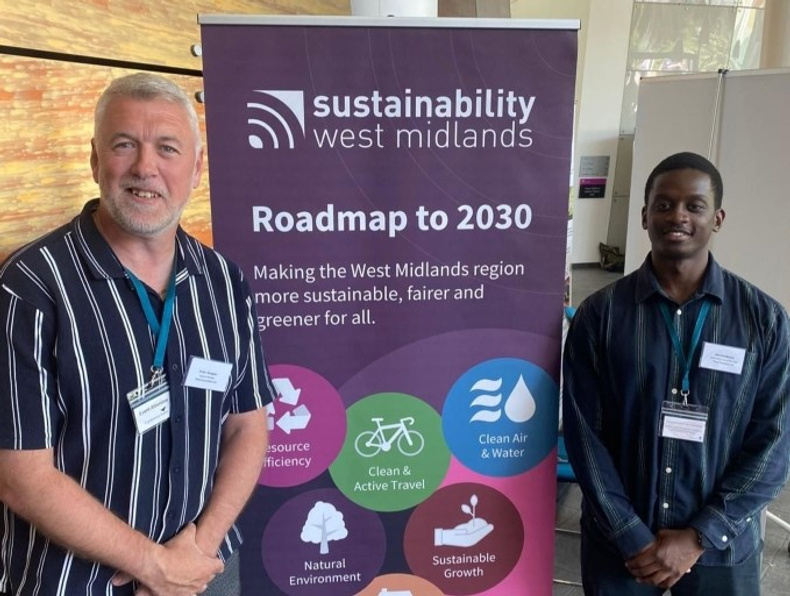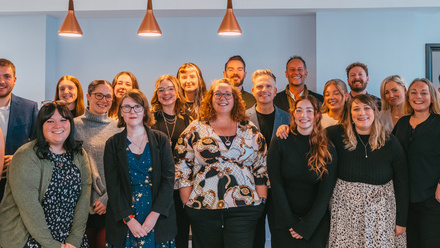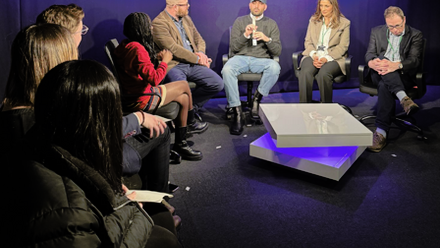Automotive sector partnership set to transform manufacturing for a greener future

In a UK-first for the automotive supply chain, Aston Business School is teaming up with West Bromwich manufacturer Metal Assemblies to calculate and report the carbon cost of every metal component used in car production, tackling one of the industry’s biggest sustainability challenges.
It is hoped the Knowledge Transfer Partnership (KTP) will transform how vehicle parts are made and regulated, setting a new standard for transparency and low-carbon manufacturing across Europe.
Metal Assemblies produces a wide range of machined metal components and welded assemblies, supplying Toyota, BMW and Nissan, among other manufacturers across the UK and Europe.
New environmental regulations, such as the EU Carbon Border Adjustment Mechanism, now require detailed data on the carbon cost of each vehicle component and place tariffs on carbon intensive goods.
Developing more sustainable approaches to manufacture vehicle parts will help the sector to limit these tariffs and support efforts to decarbonise the automotive industry.
Through the three-year KTP with Aston University, Metal Assemblies is gaining access to specialist data and operations expertise.
The project will design and integrate an innovative approach to energy efficiency across the company’s entire manufacturing process.
This will deliver a competitive edge into the business, supercharging its plans to be the first in the sector to offer detailed carbon cost information.
The project will collect and analyse data on energy consumption at Metal Assemblies based on a product life-cycle analysis and will create a sustainable manufacturing strategy for the company.
This will allow it to better market different products and processes based on their carbon content and possible trade-offs.
The team will also use a concept called Sustainability Fitness, developed by Aston University academics, to measure how healthy and sustainable the company is.
Using this approach, the project team expects to identify the most urgent and cost-effective improvements while also making sure the company stays competitive and meets regulations.
By enabling Metal Assemblies to work in partnership with customers to design more sustainable components, this KTP will support the wider sector to adopt alternative, lower-impact manufacturing techniques.
The project builds on a previous digital transformation KTP between the two partners to design and embed automated Industry 4.0 manufacturing processes across Metal Assemblies.
Dr Breno Nunes, reader in sustainability operations management at Aston Business School, said: “Through the Corporate Sustainability Fitness Model, we’ll be providing Metal Assemblies with a visual dashboard that clearly shows the company’s sustainability performance, trade-offs of each potential shift in their strategy, and a clear direction to take for a more sustainable future.
“This offers a new way to think about sustainability – one that balances short-term economic needs and longer-term sustainability requirements.”
Aston Business School offers the advanced research capabilities and specialist knowledge required to transform manufacturing processes at Metal Assemblies so they are fit for a greener future.
Knowledge Transfer Partnerships, funded by Innovate UK, are collaborations between a business, a university and a highly qualified research associate.
The UK-wide programme helps businesses to improve their competitiveness and productivity through the better use of knowledge, technology and skills. Aston University is a sector-leading KTP provider, ranked first for project quality, and joint first for the volume of active projects.
Pictured from left to right: Peter Douglas, general manager, commercial at Metal Assemblies and Ronnie Akumu, KTP associate



